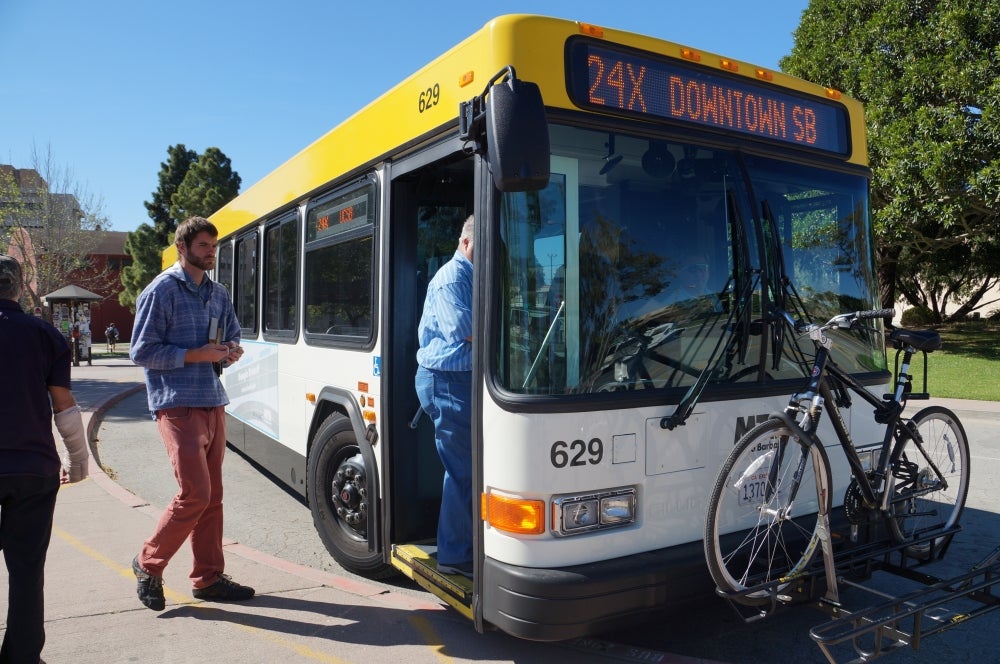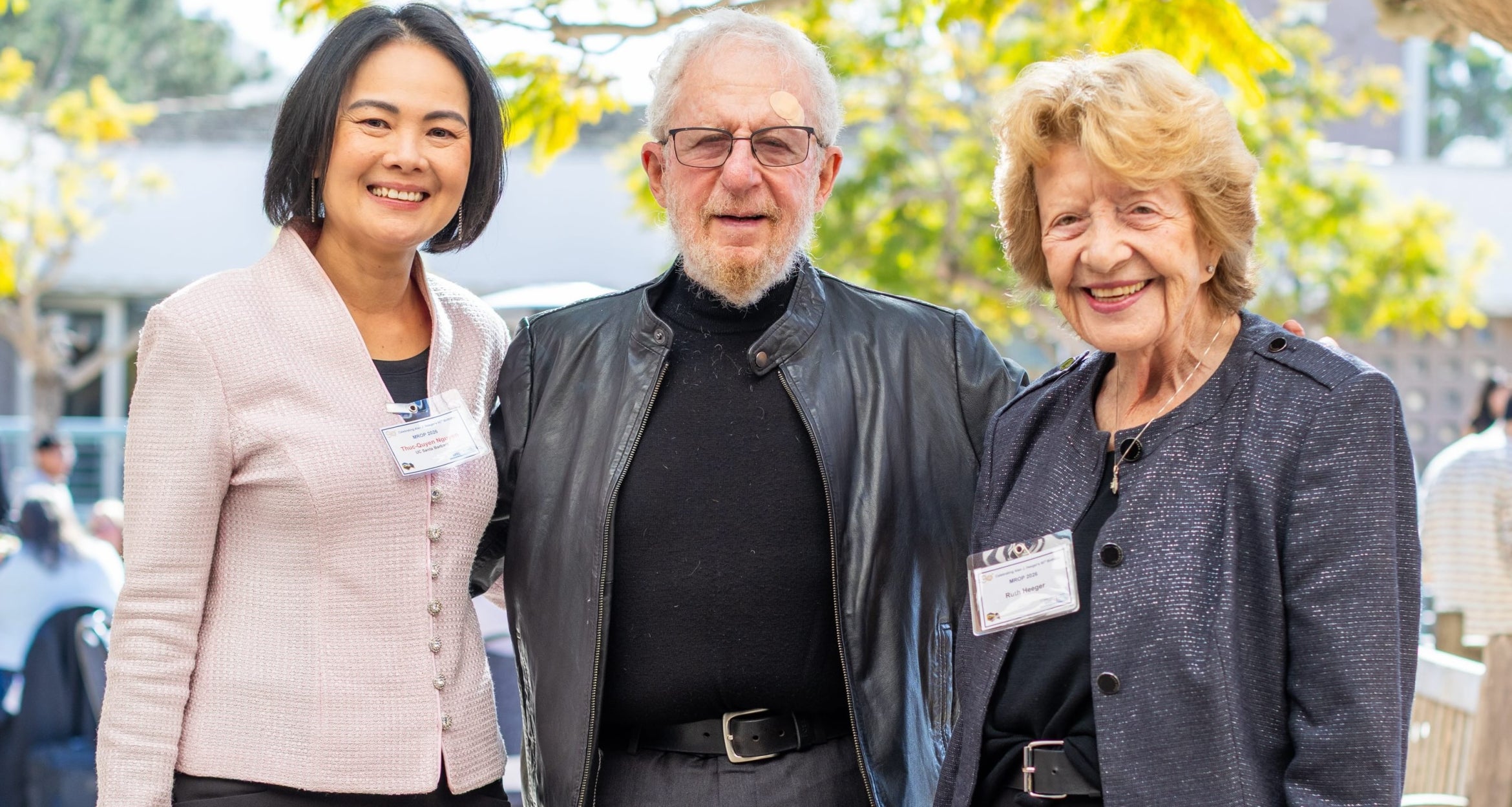
Gold for Green
Recognized for its efforts to promote transportation alternatives and reduce carbon emissions by increasing bus ridership, UC Santa Barbara has won a 2016 Best Practice Award in the annual Energy Efficiency and Sustainability Awards contest sponsored by the California Higher Education Sustainability Conference (CHESC).
UCSB, perennially ranked among America’s greenest universities, was honored in the category of sustainable transportation, cited specifically for its successful and ongoing partnership with Santa Barbara Metropolitan Transit District (MTD). The two entities have collaborated to expand the hours and frequency of two existing MTD routes, plus create a new line that university students and employees can ride free.
“I am delighted that the collaborative efforts of UCSB and MTD to realize more efficient and effective public transportation have been recognized by a CHESC Best Practice Award,” said Bruce Tiffney, dean of UCSB’s College of Creative Studies and co-chair of the Chancellor’s Sustainability Committee. “Such cooperation will be key in maintaining the extraordinary living environment that we collectively enjoy, as well as addressing our responsibility as a campus and a community to stewarding the resources of our planet.”
UCSB bus ridership has increased steadily over the past decade, with the 2014-15 year marking a more than 66 percent increase over 2008-09 levels. To meet the growing demand, the university funded extensions of MTD’s most popular lines — 12x and 24x — running between campus and Santa Barbara as well as the creation of a new line to service new campus housing. Slated to begin in August, line 28 will take riders between campus, Isla Vista and the Camino Real Marketplace at Storke and Hollister roads.
The overall goal of the collaborative project is to minimize traffic from single-occupancy vehicles and associated emissions; curtail the demand for parking; and dissuade students and employees alike from bringing cars to campus by providing a public transit connection to housing.
“UCSB’s partnership with MTD is great for the campus in terms of promoting alternative transportation, and it allows us to build fewer parking spaces, which is part of our commitment to the environmental community in Santa Barbara,” said Marc Fisher, UCSB’s vice chancellor for administration. “The new line 28 will provide a great service for our faculty, staff and students, who will be able to use the bus at no charge with a valid ID. With more transportation between the east and west ends of campus, and easier access to stores and movie theaters and other services students need, it should be easier for them to not bring cars to campus.”
Fisher added: “Overall it’s a huge community benefit as it produces fewer trips on the road, resulting in fewer emissions, and may also ease some demand for parking.”
Representatives from UCSB will detail the project and officially receive the award at the annual CHESC event, being held this year June 27-July 1 at California State University, Fullerton.
CHESC highlights cutting-edge research, as well as case studies with proven successes in curriculum development, operational programs and community partnerships. The conference is organized jointly by independent/private colleges, California Community Colleges, California State Universities and the University of California.



